Reviews
Josef von Sternberg and Nicholas Ray
USA, 1952
Credits
Review by Thomas Scalzo
Posted on 24 August 2008
Source Warner Brothers DVD
Categories The Mystic: The Films of Nicholas Ray
Not twenty miles across the mouth of the Pearl River from Hong Kong lies Macao—a place of international intrigue, loose laws, and desperate characters. A place where a man can forget his past, or find his fortune. A home to Chinese, Portuguese, and anyone else looking for a new life, a new chance.
Aboard a steamship making its way to this sultry port, a laconic stranger breaks up a domestic disturbance—and has his pocket picked for his troubles. A striking dame struts down the gangplank, and holds every man’s eye in the process. And a traveling salesman offers a lady a new pair of stockings, no strings attached. And though she accepts the gift, part of her knows she shouldn’t—for this is Macao, where nothing is what it seems, and nothing comes for free.
With such an enticing backdrop, it’s hard to imagine that a film—particularly one co-directed by Josef von Sternberg and Nicholas Ray—could be anything less than stylish and enthralling. And yet, at nearly every turn, Macao lets us down.
Take Nick’s pilfered wallet during those promising opening scenes. Does the thief craftily employ her knowledge of Nick’s unprovable identity to frame him for a crime, or lead him into a sordid affair of blackmail and subterfuge? No. She ultimately feels bad about what she did and gives him his money back. And does Nick’s persistent lack of identification set him at odds with the local police, compelling him to duck into dark alleys or compromise his morals? No. The cops just look the other way. About the only unpleasant repercussion from the theft is Nick’s inability to secure any sort of employment. A hindrance, perhaps, but certainly nothing that makes for riveting cinema.
Then we have the unifying storyline of an undercover American cop attempting to lure the cautious gambling gangster Halloran beyond Macao’s three-mile immunity demarcation. His plan? Hype Nick as a seller of stolen diamonds, and have him suggest a sale across the bay in Hong Kong. The problem is, the diamonds the cop uses as bait are the very same stones Halloran sold the previous week. Suspecting a setup from the start, Halloran evades capture with ease. Like the weak effort to develop Nick’s stolen wallet into an intriguing storyline, this foolish sting operation is lazy, ill conceived, and effected with little enthusiasm. Such is Macao, a meandering, empty film filled with vacuous, irrelevant characters, and a shallow story.
Officially directed by the celebrated stylist Josef von Sternberg, Macao was evidently such a mess that Howard Hughes called on Nicholas Ray to come in a clean things up. The extent of Ray’s contributions is unclear, though some sources have him reshooting “about a third” of von Sternberg’s footage, while others suggest Ray’s work was limited to a few select action scenes. Perhaps the most telling comment comes from The Films of Josef von Sternberg, which states that von Sternberg’s contribution to the film was “exclusively stylistic,” going on to explain that there “is no evidence, internal or external, of any deeper involvement than that.”
Regardless of who created what, the film is truly only worth watching for the presence and performances of its two stars, Robert Mitchum as Nick and Jane Russell as Julie. Though each portrays a character utterly bereft of any serious motivation or purpose, there is a wonderful connection between them that at times overshadows all the narrative shortcomings. The rapidly paced and suggestive dialogue between the two, particularly during the opening scenes on the steamer ship, is a delight, with neither backing down. The trouble is, the characters never move very far away from this sparring. In fact, in the one scene in which Julie lets her guard down and cuddles up to Nick, allowing herself a moment to dream of a better future, the chemistry between the two dissolves and the scene feels forced and awkward. That we continue to watch and take pleasure at all in the film owes a great debt to the ability of both Mitchum and Russell to be cool and beautiful, even if they don’t have much to work with.
Again, though it is impossible to gauge completely Ray’s involvement on any particular aspect of Macao, it is interesting to note the similarities between the interplay of Nick and Julie with that of Vienna and Johnny in Ray’s Johnny Guitar, released less than three years after Macao. Unlike Nick and Julie, Vienna and Johnny are complete characters with fully developed personalities and motivations. It’s not just the presence of Sterling Hayden and Joan Crawford that make the film work, it’s the complexity of the characters they’re playing. As Johnny Guitar unfolds, we watch their relationship evolve beyond playful back and forth banter to something deeper and more meaningful. It is certainly conceivable that Ray observed the little that worked and all that didn’t in Macao, and kept everything in mind when he made his film.
Shallow characters and trite plot aside, much has been made over the film’s striking stylistic elements, a nighttime chase through the bobbing boat docks in particular cited as a marvelous example of von Sternberg’s flair for the beautiful image. Admittedly, the scene is a strong one, with an excellent interplay of light, shadows, and hanging fishing nets to craft a sense of the confinement and inescapable precariousness of life in Macao. And yet because we never make much of a connection with the main characters, and never get pulled in to the plot, the scene, and a few memorable others like it, simply come and go as we wait for something meaningful to happen. Sadly, it is not to be, and we are left to revel in the interchanges between Nick and Julie, marvel at the emptiness of the story, and the city of Macao, and entertain ourselves trying to guess who directed what. It’s a potentially intriguing game at first, but like Macao, ultimately pointless.
More The Mystic: The Films of Nicholas Ray
-
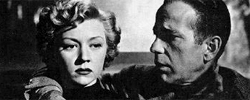
In A Lonely Place
1950 -

They Live By Night
1948 -
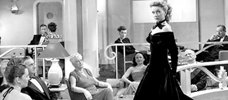
A Woman’s Secret
1949 -
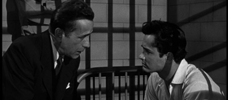
Knock on Any Door
1949 -

Born to Be Bad
1950 -
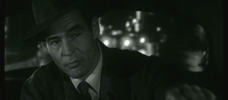
On Dangerous Ground
1952 -
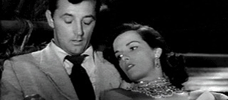
Macao
1952 -
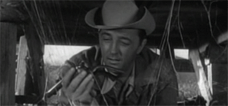
The Lusty Men
1952 -

Johnny Guitar
1954 -
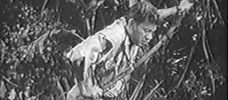
High Green Wall
1954 -

Rebel Without a Cause
1955 -

Bigger Than Life
1956 -

Hot Blood
1956 -

The True Story of Jesse James
1957 -
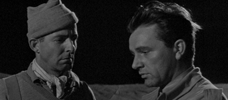
Bitter Victory
1957 -

Party Girl
1958 -

King of Kings
1961 -

55 Days at Peking
1963 -

The Janitor
1974 -

We Can’t Go Home Again
1973-1976 -
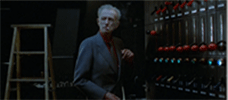
Lightning Over Water
1980
We don’t do comments anymore, but you may contact us here or find us on Twitter or Facebook.



